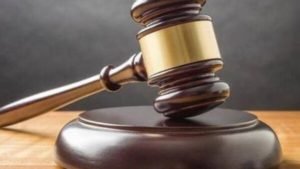The appellants, Hansura Bai & Anr. (mother and aunt of Deva Pardhi), approached the Supreme Court via special leave against a High Court of Madhya Pradesh judgment dated 20th December 2024
The High Court had turned down prayers for transferring the investigation into the custodial death of Deva Pardhi and for releasing Gangaram Pardhi on bail.
An FIR (No. 232 of 2024) was initially lodged by Bhagwan Singh for theft and house trespass (Sections 380 and 457 of the Indian Penal Code) on 3rd June 2024.
On 14th July 2024, police allegedly entered the appellants’ wedding venue (Haldi ritual), assaulted family members, and forcibly took Deva Pardhi and Gangaram Pardhi to Jhagar Chowki.
Both Deva Pardhi and Gangaram Pardhi were allegedly subjected to “intense third-degree treatment,” including beatings, chilly powder, petrol, salt, and hot water.
Deva Pardhi was reportedly strung up by ropes, hung upside down, and pressurised to confess to theft. He stopped responding to torture and was later declared dead at the hospital.
Gangaram Pardhi was illegally detained by police officials from 15th July 2023 (note: this date appears to be a typographical error given the 2024 dates for related events), exceeding 24 hours, before being remanded to judicial custody and sent to Guna district jail.
A subsequent FIR (No. 247 of 2024) was lodged by a police official, Shri Rajendra Singh Chauhan, who was part of the team involved.
A post-mortem report on Deva Pardhi indicated multiple contusions and abrasions, with the cause of death being vasovagal shock leading to heart attack.
- A Magisterial Enquiry led to the registration of FIR No. 341 of 2024 under Section 105 (culpable homicide not amounting to murder), among other sections, against the Town Inspector and seven other police personnel.
- The investigation into Deva Pardhi’s custodial death had not resulted in any arrests of the accused.
- Gangaram Pardhi was implicated in multiple criminal cases after the incident of 13th/14th July 2024, and his bail was denied by the High Court, despite the High Court acknowledging allegations of police threats, coercion, and duress.
Law Involved
- Indian Penal Code (IPC) Sections: 380 (theft) and 457 (house-trespass).
- Bharatiya Nyaya Sanhita (BNS) Sections: 191(1), 191(2), 190, 109(1), 132, 121(1), 296, 221, 324(4)1011, and importantly, Section 105 (culpable homicide not amounting to murder), Section 115(2) (voluntarily causing hurt), and Section 3(5) (joint criminal liability).
- Scheduled Caste and Scheduled Tribe (Prevention of Atrocities) Act, 1989: Section 3(2)(v).
- Constitution of India: Article 136, under which the special leave appeal was heard.
- Legal Principle: The maxim ‘nemo judex in causa sua’ (no one should be a judge in his own cause) was highlighted.
Reasoning
- The Supreme Court noted that the grievance of the writ petitioners (appellants) was that the local police were causing grave prejudice to them and that the investigation agency’s credibility was impeachable.
- The Court found that if an investigation agency is “privy to the dispute,” its credibility may be doubted, and there is a need to transfer the investigation to a certain investigating agency.
- Drawing on precedents like Mohd. Anis v. Union of India and R.S. Sodhi v. State of U.P., the Court emphasised that an independent investigation agency is necessary when there are doubts about the fairness and impartiality of the local police, especially if they are allegedly involved in the crime. It was deemed in the “interest of justice” to transfer the investigation to the Central Bureau of Investigation (CBI).
- It was undisputed that a police official was responsible for Deva Pardhi’s custodial death and Gangaram Pardhi’s arrest.
- The Court observed that Gangaram Pardhi, the sole eye-witness to Deva Pardhi’s torture and death, experienced “serious threat perception” from police and was allegedly entangled in multiple false cases to pressurise him. The respondents’ argument that shifting Gangaram Pardhi to a different jail alleviated these fears was not accepted as sufficient.
- The principle of ‘nemo judex in causa sua’ was crucial; it was deemed inappropriate for the local police to investigate a case where the allegation of custodial death was against their own personnel.
- The Court found that the local police had influenced the investigation from the beginning and were apparently shielding their own fellow policemen.
- The fact that no accused had been arrested eight months after the FIR for culpable homicide was registered suggested that the investigation by local police was not being carried out in a fair and transparent manner.
Holding
- The Supreme Court granted leave to appeal.
- The investigation of FIR No. 341 of 2024 (pertaining to Deva Pardhi’s custodial death) was ordered to be transferred to the Central Bureau of Investigation (CBI).
- The CBI is directed to ensure a fair, transparent, and expeditious investigation.
- Police officials found responsible for the custodial death are to be arrested promptly.
- The investigation is to be concluded within 90 days from the date of arrest of the accused.
- The Court granted liberty (bail) to Gangaram Pardhi in all cases in which he has been implicated after the incident dated 13th/14th July 2024.
- Gangaram Pardhi is to be released on bail subject to conditions imposed by the High Court.
- The State is responsible for providing safety and security to Gangaram Pardhi, whether in prison or after his release on bail.
Hansura Bai And Another V. State Of Madhya Pradesh And Another
Supreme Court: 2025 INSC 711: (DoJ 15-05-2025)






